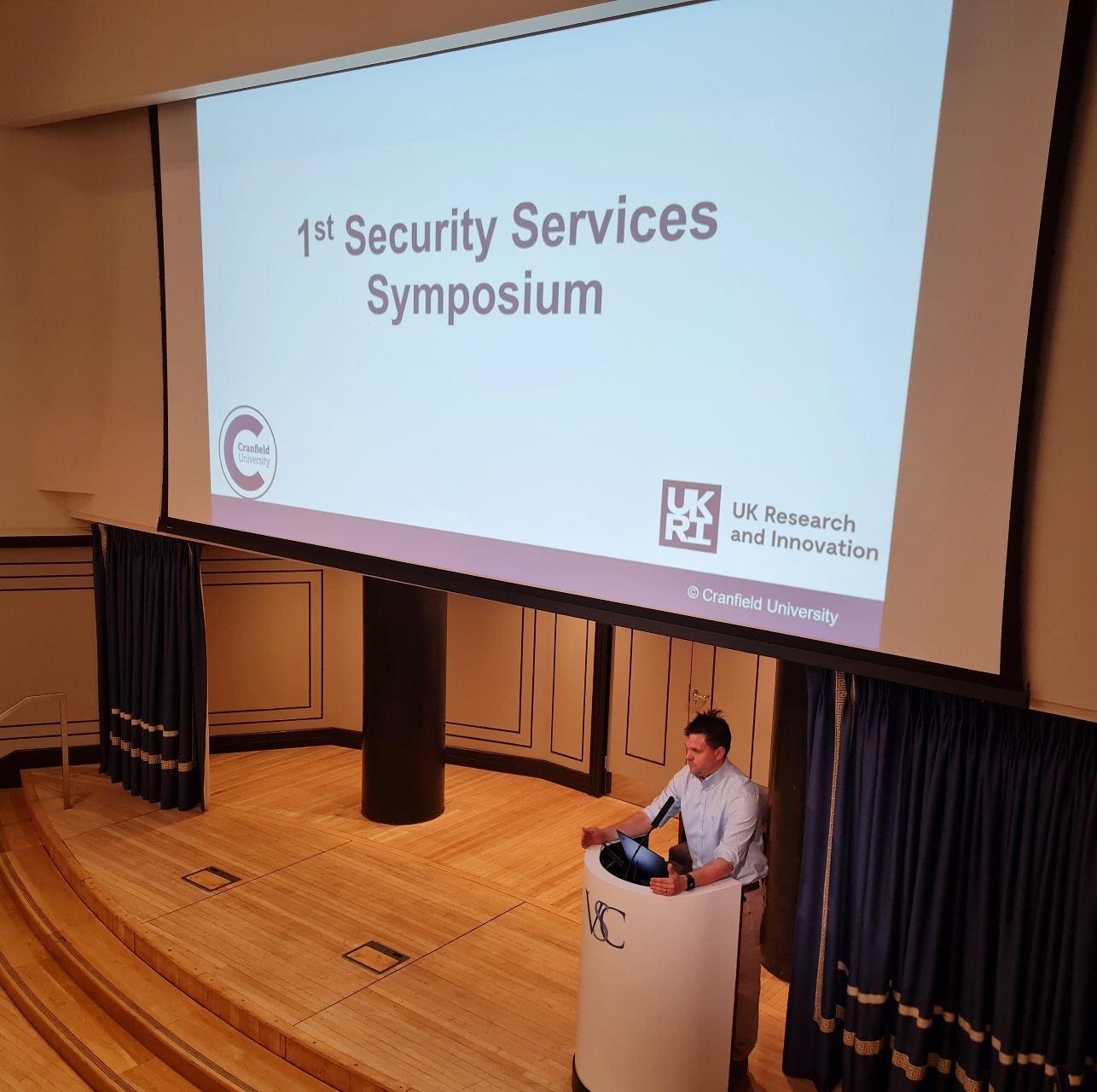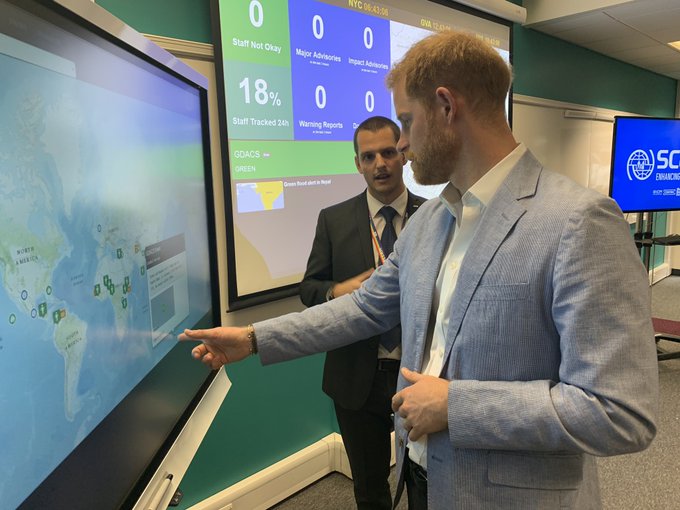Introduction to the course
This training course has been developed by a team of academics and advisors based at the Centre of Excellence in Terrorism, Resilience & Organised Crime Research (CENTRIC) as part of a leading EU radicalisation project:
Transversal Bridge (TRANSRAD) is a European Commission, Directorate General Home Affairs funded project addressing the emerging threat of transversal terrorist alliances for European nations and communities. TRANSRAD aims to detect and profile the emerging threat of transversal European radical groups and raise the awareness of institutional bodies and civil society at large on the risks potentially connected to these “radical bridges”. This project seeks to provide a new analytical grid to underpin the design of a strategic approach to counter these new and emerging threats. The project was made up of an impressive international consortium, with key participants and advisory board members from:
• UK, (Centric, West Yorkshire Police, ISDEP: Improving Security By Democratic Participation)
• Italy, (Agenfor Media NGO)
• Bulgaria, (Interior Ministry Police Academy, European Institute)
• Spain, (Guardia Civil)
• Czech Republic, (Technical University Prague)
• Greece, (Hellenic Foundation for European and Foreign Policy)
• Slovakia, (e-Silk Road (Anti-corruption NGO)
• Sweden, (Stockholm Refugee Legal Expert)
• Turkey, (Chief of District Police; Gemerek, Sivas)
Over the past two years, TransRad has collected multi-disciplinary counter-radicalisation case studies to identify the primary and secondary data required to subsequently produce threat assessments for new and emerging transversal threats. The data collection involved partners from law enforcement, legal and ethical committees, field-specific experts, academics and NGO’s. The project focused on; The UK, Sweden, Denmark, Germany, Italy, Greece, Spain and their ties with radical movements in Northern and Western Europe as well as influences from the Arabic world. The research activity has analysed sources from academic literature, personal interviews, police interview transcripts, court proceedings, prison records, intelligence agency reports, government assessments and other open sources, in order to build a richer understanding throughout EU Member States.
The aim of the course is to utilise the project expertise and knowledge into better equipping front line practitioners working with vulnerable people. This will help them to recognise, respond to and prevent radicalisation. This course has been designed to align with the UK CTSA legislation which makes it a statutory duty for staff to adopt ‘wider safeguarding duties’, protecting vulnerable people from the risk of radicalisation. Such duties are required to be carried out in a similar manner to those protecting vulnerable people from conventional forms of harm and abuse. Following the ubiquitous nature of social media and the internet, vulnerable individuals are increasingly exposed to, or able to access, unprecedented levels of extremist disseminated material.
The course is aimed at the following organisations:
• Primary Education Schools
• Secondary Education Schools
• Sixth-forms and Colleges
• Institutes of Higher Education: Universities, Vocational Course Institutes, Apprenticeship Providers, Internship Programmes, etc.
• Interfaith Institutions
• Social Work and Mental Health Care Sectors
• Counter-Radicalisation focused NGO’s
• Prisons, Youth Offender Centres and Probation Service Providers
• Local Authorities
• NHS Bodies
• Law Enforcement Agencies
The content of this course has been developed by an EU Commission funded radicalisation research project. There have been significant contributions from over 20 different partnered bodies over the past three years.
What will the training course cover?
Our themes in this training are about raising awareness to help practitioners identify the simple influences and vulnerabilities that create a cognitive opening to shape an individual’s thought processes towards violent extremism. The content of the course will work through a range of themes such as narratives, grievances, indicators, vulnerability and basic interventions.
The course focuses on preventing violent extremism through safeguarding vulnerability and susceptibiity to radicalising influences. The general educational and awareness crafting program has been elicited and refined through several international consortium and partner meetings, featuring input from multi-disciplinary security stakeholders in sectors of; academia, law enforcement and NGO’s.
How is TransRad different to other courses that already exist in this area?
TransRad doesn’t seek to reinvent the wheel. It has, in fact, taken the learning, research and experience from various agencies, practitioners and other training programs to create a visual and interactive training tool. The project programme has benefitted from a rich pan-European consortium, and so focuses on a wide variety of extremist threats, factions and processes. The research has been adapted to align with current UK Prevent Duty CTSA legislation and OFSTED reporting guidelines.
Additionally, the course values your time and work commitment, therefore we offer the most concise and affordable package, without dragging out the information exchange period over several days. Due to CENTRICS academic and practical involvement in radicalisation, we have developed a refined, refreshing course, validated and accredited by leading experts and end-users to provide memorable, digestible content.
Information is presented in a clear and concise manner, not as a complex academic study; it is intended to provide simple, practical and time effective training for universal adoption. This will ensure consistency in messaging, sustainability and cost effectiveness for long-term delivery. Additionally, it will provide access to an online TransRad network platform, which offers a variety of case studies, best practice examples , and research outputs, in a user-orientated environment. Furthermore, the course combines essential preventative information , context and case studies, alongside ensuring freedom of expression, speech and academic freedom -as per; Section 31, Chapter 1, Part 5 of the Counter-Terrorism and Security Act 2015.
Course Objectives:
• Raise awareness of the various forms of radicalisation that are prominent across the UK, including analysis of self and group-radicalisation processes.
• Enhance identification capabilities of first-responders and practitioners to correctly and proportionately respond to concerns.
• Acknowledge the inter-relations, sub-factions, and dependencies of various groups, including exacerbating tensions and ideological intolerance between opposing extremists.
• De-escalate radical narratives, through increasing value-complexity and social tolerance throughout society.
• Build knowledge of the various types of propaganda material, and best practices to block and dismiss them.
• Establish a platform for return feedback and elicitation of further stakeholder requirements, for future development and maintenance of social resilience concepts.
Why do I need to do this course?
As the landscape of the global threat changes, there is a growing need to respond accordingly to the diverse ideological challenge of terrorism and the threat we face from those who promote it. The rise in violent extremism globally determines the need to strengthen our institutional capacity to respond to these issues and to build resilience within front line sector staff. The influential role of social media and the internet further signify the urgent need to engage early with practitioners who work with vulnerable people in order to prevent violence inspired by extremist ideology.
The TransRad project harmonises with the EU’s Internal Security strategy which recognises that internal security cannot be achieved in isolation from the rest of the world. This project resonates with the EU’s commitment to promoting human rights, democracy, peace and stability within the EU Member States.
What support can I expect as a trainer after I have completed this training course?
The training programme will offer practical ways to support ongoing networking with other trainees in organisations in order to strengthen a joint approach and resilience to challenge violent extremist ideology and address grievances. Upon completing the course, we will provide you with further dissemination material and resources provided, adapted to your local context, and accessibility to a communication network where case studies and best practice can be shared.
The course will enhance security resilience through a greater understanding of motives, causes, case studies, and analysis of emerging trends and relevant groups. The course pays unbiased attention to divergent facets of extremism, including from within the Far-Right, Far-Left, and Islamist spectrums. The course will create a richer understanding of the complexities and interdependencies of internal and external group relations.
Do I receive some form of accreditation from this course?
All the course trainers who attend the course will receive an accreditation certificate as recognition for attending the course and will be qualified as ‘an official TransRad Radicalisation Safeguarding Practitioner’.
Contact Details
Please contact: rsa-transrad@shu.ac.uk for any enquires.
Alternatively, you can call:
Douglas Wells: 0114 225 6775
Babak Akhgar: 0114 225 6770








